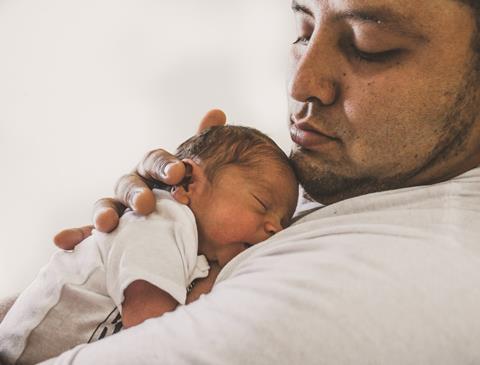
My husband and I have just finished shared parental leave for the second time. This time, I returned to work six months after the birth of our second son as my husband started three months of staying at home to look after him. I’ve been fascinated by the range of responses we get from people about it.
Some of our friends have also shared their parental leave. Some look on in admiration, or wish that similar options had existed when they were having babies. Some are puzzled. One Christian man told me he “just didn’t get it”. Why would I, as a mother, want to return to work so soon? And why was my husband OK with staying at home?
He vocalised what many people with so-called ‘traditional views’ about gender roles might be thinking: the world of babies, nappies, feeding and nurturing belongs to mothers, while men should go out and provide financially for their families.
If I’m being honest, both times it felt too early for me to be back at work. With hormones raging and feeling the anxiety of separation from my baby, I have sat in the toilet cubicle and cried, battling a crippling sense of guilt at having left him. But I also know that, in the long-run, it is better for us as a family if my husband also gets to spend quality time with our babies and experience the all-consuming nature of solo parenting.
The government introduced shared parental leave – enabling mothers to transfer some of their maternity leave entitlement to the baby’s father – in 2014. But in 2020, just two per cent of parents had taken it up.
In many ways, I totally understand why. Aside from the ridiculously complicated system, there is a potential loss of income for families where the father is the breadwinner, not to mention overcoming the societal stereotypes about who should be left holding the baby.
But here’s where the evangelical Church – often characterised by its promotion of family values and its campaigning against abortion – should be playing a leading role. Research shows that families benefit when fathers play a greater part in their children’s upbringing – including in the very early years. And not only is it good for children, it’s good for women. I’ve written before about how dark those early post-partum days can be. Women need all the support they can get.
If the Church really is pro-life, this is an area it needs to focus on more. Gone are the days of the stereotype of teenage mothers aborting unwanted pregnancies. Today, the majority of women having abortions are those with a partner or who are married – up from 48 per cent in 2005 to 65 per cent in 2021.
More than half of women terminating pregnancies are already mothers. How many of these terminations might be due to women feeling unable to cope?
Although it is a profound privilege to be a parent, having babies takes its toll: financially, emotionally, physically and spiritually. Perhaps if we encouraged more men to share the load, it would be better for us all.






































No comments yet